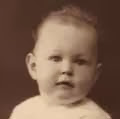Vulnerability as Blessing Part II
The perhaps second most intimate possible experience of vulnerability is the sight of one animal making another its prey, especially if the preyed upon has the means of making its attacker the victim of the encounter. Its very commitment to staying alive leads the predator to its own death if it does not succeed in killing its prey. It could be thought hardly surprising if, in such circumstances, a species that acquired a competitive edge in the struggle for existence, perhaps through the ability to reflect on its situation, responded with hostility to everything around it, developing habits of contempt with its growing power to assert itself in the landscape, to define anything it found a use for as a "resource", and to eliminate whole populations as "pests"! What is truly surprising, therefore, is the elegant relationships that human beings actually developed with their fellow creatures, most profoundly evident in the assurances given to a slaughtered animal, by those who hunt what they eat, that its death serves the life of others.
Such a gesture implies a conception of the world extending beyond the visible, and life as an aspect of being. The hunter Poets conceived of all living things as parts of a creator ancestor whose body also includes the landscape with its wind and rain, its sun moon stars and planets, all continually interacting together, all continually changing, merging and emerging. The role of human beings in this view of the world is to maintain the integrity of the world by performing its Increase Rites. Such a conception does not diminish the instinct for self-preservation. But it transcends the sense of vulnerability by embracing a sense of destiny understood not merely as the end point or culmination of life, but as the end (purpose) of life.
Reaching beyond what is apparent (such as the sun rising and setting over a landscape that, mountains and valleys not withstanding, is always flat as far as the eye can see) to convictions that have no obvious basis (such as the roundness of the Earth and its motion around the sun) is probably the single most important human characteristic. Without it there would be no culture ‑ no organisation of effort, and no technology of any kind. But if, as is assumed here, vulnerability is the primary human experience, then effort and technology focused upon the preservation of an organised group could be expected to function as a powerfully conservative force, serving the interests of those with a capacity to dominate the organisation, turning Strong Men into Generals and then into Kings or Emperors, and, even into gods. Social, political and religious orthodoxies, however, are vulnerable to radical insight and action.
The Poet, in courtier and stave alike, who knows the space in which s/he is invulnerable to all things also knows that no thing can be the source of lasting security or satisfaction, because no thing lasts. S/he reserves the option of not submitting totally to the necessity of what is apparent (the norms of society and the socially constructed ego) so that s/he can merge with the source of all things (with no‑thing) and dwell in the worth s/he experiences, and emerge empowered to endure the poverty of the relationships in which s/he is enmeshed, and, when the opportunity arises, to put pressure on those relationships to change.
Subscribe to:
Post Comments (Atom)

No comments:
Post a Comment